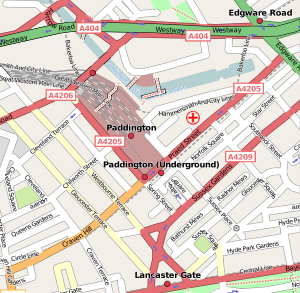The assembly of an OER course signals a mind shift from “Not invented here” to “proudly borrowed from there“[1]. In this learning pathway you will put this into practice by publishing your own OER learning sequence, to include a number of “proudly borrowed” OER assets.
The overall aim of this learning pathway is to publish your own learning materials in the wiki. In this learning pathway you will:
- Generate an inventory of existing OER you can reuse for your own materials in the wiki.
- Populate the pages of your course outline developed earlier in this course by editing these pages directly in the wiki.
- Provide feedback, advice and support to fellow learners developing materials in the wiki.
Summary of what you will do in this learning pathway

Navigating this learning pathway
The following steps combined with a few additional wiki skills will assist you in developing own learning pathway in the wiki.
Step 1: Generate an inventory of OER and open access materials
The intention with open design and development in open education is to assemble courses from existing OER rather than developing everything from scratch. You have already sourced a few images, remixed a graphic or chart and produced a video or screen cast for reuse in the course materials you are developing. Before commencing with the development of your learning pathway, we recommend that you conduct a search for OER you could reuse for your own project. In addition, you may want to include OER and open access materials which are externally hosted to support learning activities for your course.
Step 2: Familiarise yourself with the wiki conventions used in WikiEducator
Most wiki communities will have style and format conventions to promote consistency. Large communities like Wikipedia have extensive policies for collaborative editing. Communities like WikiEducator have fewer conventions because we are not attempting to develop a single encyclopaedic article. However, agreed format conventions facilitate collaborative development and reuse because materials are formatted in a consistent way. In addition, familiarising yourself with the common layout mistakes made by new editors will save you time and effort.
Step 3: Incorporate learning activities
Learning resources typically incorporate learning activities designed to promote engagement and to support learners in achieving the learning outcomes. Here you will use your prior experience of using pedagogical templates in the wiki.
Step 4: Develop a course landing page
If you’re developing a course website, you may choose to use a number of optional layout features for your landing page (home page) of your site. Here we will introduce a few additional layout options and demonstrate how to implement these in the wiki.
Notes
- ↑ Frequently cited by Cable Green of Creative Commons during presentations. See for example: http://bccampus.ca/2012/11/08/proudly-borrowed-from-there/
The assembly of an OER course signals a mind shift from “Not invented here” to “proudly borrowed from there“[1]. In this learning pathway you will put this into practice by publishing your own OER learning sequence, to include a number of “proudly borrowed” OER assets.
Objectives
The overall aim of this learning pathway is to publish your own learning materials in the wiki. In this learning pathway you will:
Summary of what you will do in this learning pathway
The following steps combined with a few additional wiki skills will assist you in developing own learning pathway in the wiki.
Step 1: Generate an inventory of OER and open access materials
The intention with open design and development in open education is to assemble courses from existing OER rather than developing everything from scratch. You have already sourced a few images, remixed a graphic or chart and produced a video or screen cast for reuse in the course materials you are developing. Before commencing with the development of your learning pathway, we recommend that you conduct a search for OER you could reuse for your own project. In addition, you may want to include OER and open access materials which are externally hosted to support learning activities for your course.
Step 2: Familiarise yourself with the wiki conventions used in WikiEducator
Most wiki communities will have style and format conventions to promote consistency. Large communities like Wikipedia have extensive policies for collaborative editing. Communities like WikiEducator have fewer conventions because we are not attempting to develop a single encyclopaedic article. However, agreed format conventions facilitate collaborative development and reuse because materials are formatted in a consistent way. In addition, familiarising yourself with the common layout mistakes made by new editors will save you time and effort.
Step 3: Incorporate learning activities
Learning resources typically incorporate learning activities designed to promote engagement and to support learners in achieving the learning outcomes. Here you will use your prior experience of using pedagogical templates in the wiki.
Step 4: Develop a course landing page
If you’re developing a course website, you may choose to use a number of optional layout features for your landing page (home page) of your site. Here we will introduce a few additional layout options and demonstrate how to implement these in the wiki.
Notes
Content is available under the
Creative Commons Attribution Share Alike License.
Privacy Policy | Authors